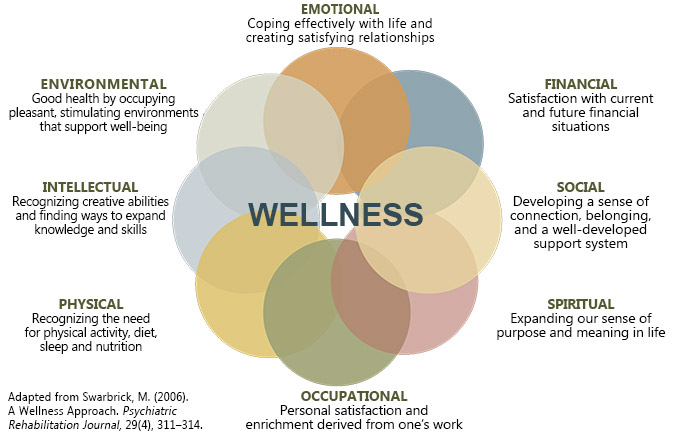We don’t need to bring out all of the statistics. People in the health sciences at all levels know that doctor, nurse, and other healthcare provider burnout is on the rise both in the professional setting and among students. Several recent surveys have found that as high as 50% of all medical students self-report being burned out before they’ve even entered the profession. Because of this, health sciences institutions have begun to focus on wellness. In particular, academic institutions, like UNM HSC, have begun focusing on the health of their students.
We here at HSLIC have started offering programming focused on helping our students take care of their mental and physical well-being. Academic libraries, ours being no exception, are often a congregation place for studying and intense self-learning, and as such, it becomes the duty of any academic library to aid their students in these pursuits. At the most general level, libraries have traditionally interpreted that duty as providing the resources necessary for students and researchers to access the materials and information they need. Nevertheless, it is becoming more apparent that the library space can and ought to be so much more to our students as they pursue their studies.
It becomes our task, then, to try to marry these two different goals. How do we in academic libraries provide for the various aspects of wellness (they vary depending on who you ask – but generally emotional, environmental, intellectual, physical, financial, social, spiritual, and occupational wellness) while also not turning the library into a disruptive environment to its traditional role of being a place of intense learning?
Believe it or not, you can over-study, and there are diminishing returns in concentration and retention when you study/cram over long periods of time. Any musician knows this phenomenon well – that there is an upper-limit to any one person’s ability to effectively practice and concentrate. A recent University of Illinois study found that frequent, short breaks help the brain process the information as it transitions from short-term to long-term memory.* Getting up, moving around, and stretching have also been shown to wake up a lethargic body and help us concentrate again.
HSLIC has begun implementing various means for our students to take these much-needed study breaks. For example, we have been providing study snacks and coffee at key times during the semester. We brought in a therapy dog during final exams last semester, and we look forward to making that a regular occurrence. We also now have two board games – Pandemic and Operation – available for checkout at the front desk in case a group of students wants to take a longer study break and get some much needed social interaction! And, hopefully, we will soon be adding some sporting equipment for checkout so that our students will have access to things that encourage physical activity during their study breaks.
Keep on the lookout as we continue to bring this initiative online and experiment with events and services that attract our students and make this a full-fledged part of the library’s offerings. And if you have any suggestions, feel free to contact me at jlbancroftsmithe@salud.unm.edu!
*Brief and rare mental "breaks" keep you focused: deactivation and reactivation of task goals preempt vigilance decrements.

